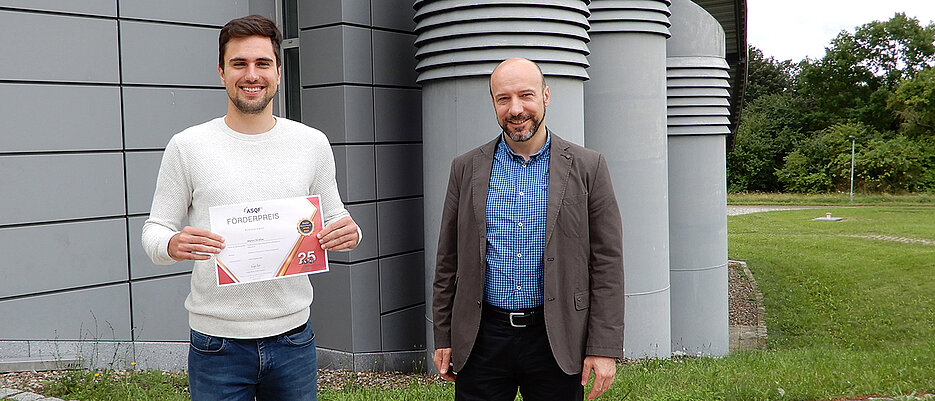In his master's thesis, computer scientist Martin Sträßer developed an early warning system for performance problems in webshops. He received an award for this work.

Many people have learned to appreciate the convenience of webshops, especially during the Corona crisis: almost one in three Germans shops online at least once a week.
But how do webshops actually work? "There is very complex software behind it," says computer scientist Martin Sträßer from Julius-Maximilians-Universität (JMU) Würzburg in Bavaria, Germany. In his Master's thesis, he dealt with this software - and has now been awarded a prize: For his work, he received the 500 euro sponsorship award of the Arbeitskreis Softwarequalität & Fortbildung (ASQF).
A webshop software has to manage a lot at the same time, explains Martin Sträßer. One customer is looking for something, another is ordering, a third one is paying.
The software, therefore, consists of an ensemble of smaller programs called microservices. "You can build a microservice for payment, another for search queries." Microservice architectures offer many advantages. But they also have a disadvantage: their susceptibility to performance degradation.
Shop operators can become proactive
In his Master's thesis, Sträßer (25) developed a new approach to predicting such performance slumps. He did the work in the team of Professor Samuel Kounev, who heads the JMU Chair of Computer Science II (Software Engineering).
According to Sträßer, an early warning system for performance slumps in microservice architectures can be achieved with prediction techniques such as the Telescope framework, which was developed by Professor Kounev's team. This can be used, for example, to determine how many users are to be expected in a webshop in the near future. This leads to a prediction of whether customers will have to wait longer than desired for a purchase, for example, until the order is completed.
"The prediction can then be used to proactively prevent this problem," says Sträßer, who is now doing his doctorate at Kounev's group.
Computer scientist as a dream job
Martin Sträßer has found his dream job in computer science. And this despite the fact that he never had computer science as a subject at school.
"However, I have always been interested in mathematics," says the doctoral student, who comes from Naumburg an der Saale. Since he had hardly any IT knowledge, he took one of the MINT preparation courses at JMU before beginning his studies in the winter semester of 2014/15. He thought it was great: "I can only recommend it to everyone."
Afterward, Sträßer first completed a Bachelor's degree in aerospace informatics at JMU. In his master's degree in computer science, he focused on the development and maintenance of software.
Telecommunications resources in view
"You can use the approach I developed for different applications," he says - so it doesn't always have to be webshops.
Sträßer is currently in the process of transferring his approach to other fields: "I want to try to use it to predict resource consumption, i.e. how heavily processors are loaded, for example." These results are interesting for telecommunications providers, for example, who provide resources.
"Up to now, when resource consumption is too high, people usually act reactively," explains Sträßer. That's why it would be good to be able to make predictions here: "Then you can act in time and perhaps improve the IT architecture. If you know the resource consumption of the coming six months, you can of course also estimate your costs much better."
Computer science opens up many career fields
As a computer science graduate, you can choose between various options. Some are drawn to management consulting, others to the automotive industry, the financial sector, or the field of e-health.
It is precisely this diversity that makes computer science so attractive to Martin Sträßer. Students also find diversity in the ten current JMU computer science chairs. These include software engineering, communication networks, digital media processing, satellite technology, human-computer systems, data science, artificial intelligence, and much more.
The CAIDAS (Center for Artificial Intelligence and Data Science) is also currently being established at JMU. In this context, among other things, a new building is being constructed and ten new professorships are being created for computer science. These will deal with topics such as computer vision and machine learning.
The award-winning doctoral student Sträßer wants to work as a computer scientist in research and teaching one day. "There is not a lot of memorizing in computer science studies. It's about understanding." He encourages prospective students: "Computer science is very diverse and even people who preferred to learn by heart at school have their chances and can be successful."






